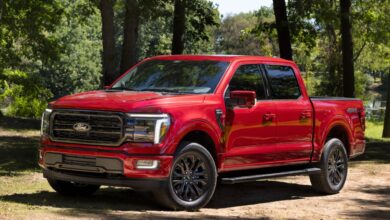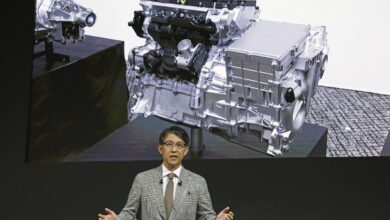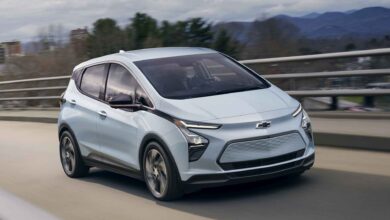These Five Chinese EV Brands Would Sell Like Crazy In The U.S.

China has a lot of upstart EV brands, but these five could do really well here with little effort.
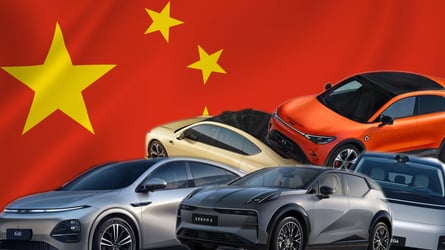
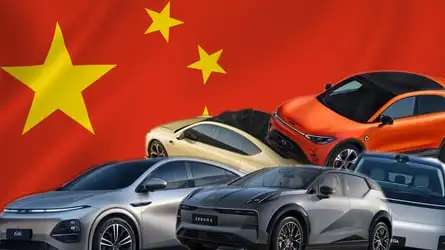
I’m still reeling from my trip to China for the Beijing Auto Show last week. Between the travel there, the food, the impressive electric vehicle infrastructure, and the dozens if not hundreds of conversations I’ve had in the Middle Kingdom, my mind has been abuzz with story concepts, information, and messages ready to relay to you all here at InsideEVs.
The one constant that sticks out in my mind is this: The Chinese automakers are ready. We’re well past the highly patronizing “They’re almost there,” a common retort by critics, journalists, and executives of Western auto brands. No, for the most part, these cars are the real deal. And many of them would actually do well in the U.S. market if tariffs, geopolitical tensions and other issues could be resolved long enough for them to come here.
Of course, some products are more dialed in than others. But here are five cars, or brands, that I think could do well stateside, based on my seat time in person, either at the Beijing Auto Show or while exploring the greater Beijing area.
Nio
Nio’s “will-they, or won’t-they” stance on its entry to the U.S. circa 2019 was nearly as wishy-washy as a teen romance on a network primetime drama. Profitability problems coupled with geopolitical tensions with China taking a turn for the worse means that Nio has stayed out of the US, and backtracked some on its plan to enter the U.S. by 2025.
Still, it’s making headlines globally for many things, including its approach to battery-swapping technology.
The lack of Nio over here is a damn shame, because these cars feel great. Out of all the brands that are glibly called “Tesla Killers,” Nio vehicles genuinely feel that way. The real appeal of Nio is how much it takes Tesla’s generic and unfriendly interior ambiance, and elevates that to actual premium status. Like, there’s a real gauge cluster in front of the driver, switches, and stalks for the appropriate controls.
There are real interior colors to choose from that go beyond just the standard taupe, grey, or black ones found on most luxury cars. The greens, purples, and blue hues available on the Nio interior options list, are reminiscent of the BMW Individual catalog.
It’s just a nice place to be.
Of course, Nio would likely steer us toward the top end of the lineup, the ET7, ET9, and ES8. All are larger vehicles. But to me, the real bright spots in Nio’s lineup are its entry-level models. The Tesla Model 3-sized ET5 Touring is a genuinely stunning vehicle, offering Acura or Audi-level interior quality in a package that feels more mature than the efforts from Tesla or any other automaker trying to make a vehicle of this size. If you’re intrigued by the BMW i4, but turned off by its bucktoothed styling and convoluted infotainment system, the Nio ET5 would be right up your alley.
Will of the YouTube channel ChinaDriven owns a Nio ET7. “Battery swapping is a convenient and fast way to recharge, and a big factor in my EV purchasing decision. I also think the exterior is pretty suave looking, whilst the interior feels lush,” he told me via WeChat. You know drivers here would appreciate that.
XPeng
Another brand with export goals is XPeng, which found itself on the wrong end of a very challenging market. This is unfortunately one of the consequences of the Chinese car scene; there are so many strong competitors that a car can straight up flop and get ignored even if the product itself is very good.
XPeng has several models, but I think the G6 crossover would be the most interesting proposition in the US. In China, this model is aimed directly at the Model Y, and like Nio, it elevates the spartan ambiance to higher, more comfortable levels.
The G6’s rear seats recline and feel like they have way more legroom than the Model Y. The dashboard is a high-quality piece of kit, complete with surface and material changes that are way more interesting than the tablet-on-a-workbench setup drivers get with a Model Y.
There’s also the X9, a fully electric van the same size as a Toyota Sienna. It too has the same impeccable fit and finish, and pleasantly airy dashboard layout similar to the G6.
At roughly $28,000 the Xpeng G6 is about $7,000 cheaper than the equivalent Tesla Model Y (in China), although this price is the result of cuts since the G6’s sales haven’t been quite what the brand has hoped for. Still, it’s a good car. Ethan Robertson, the YouTuber known as Wheelsboy, told me that it was a “solid Model Y alternative.”
Li Auto
Li Auto is one of China’s stealth big sellers we don’t really talk about. BYD and Tesla might take up most of the news cycle when it comes to Chinese EVs, but Li Auto has been holding strong in third or fourth place, with its pleasant if not slightly bland large premium PHEV crossovers.
The Li Auto Mega, a futuristic $75,000 van that holds the record for being the fastest-charging EV on the planet, made the news, but unfortunately it isn’t selling well. The bulk of the brand’s sales come from its Ram Ramcharger-style extended-range electric vehicles (or E-REVs).
That big, bland, and spacious appeal is why I think they’d sell so well in the US. On some level, the US and China have very similar tastes in cars. Both markets love big, soft, and well-finished cars that offer a lot of value. From what I’ve experienced at the Beijing auto show as well as a Li Auto store in a mall, Li Auto’s cars are genuinely nice. The quality is arguably more convincing than premium brands like Acura or Buick.
Out of all the brands in China thirsty to export, Li Auto has been remarkably quiet. It’s not clear if it has any sold plans outside of China, but I did speak with an English-speaking representative at the Li Auto stand.
They didn’t say if Li Auto had plans for expansion, but they did admit that out of all the markets ripe for Li Auto to enter, the US or Canada would likely be the most receptive to its models. “They’re sized just right for the U.S., probably too big for Europe,” they said.
I think the super-futuristic Mega EV van could court buyers in search of an EV with sliding doors, but its E-REV crossovers would likely find the most success here.
Lynk & Co and Zeekr
Lynk & Co and Zeekr are technically two brands under the Geely umbrella, but I’m lumping them together for the sake of this article. They often have some relations to their corporate cousins at Volvo and Polestar. Lynk & Co vehicles are typically PHEV models, whereas Zeekr is an all-electric brand.
Both are Chinese brands with a Swedish twist, arguably more successful in execution than even Volvo and Polestar are. Developed and styled both in Europe and China, these two semi-premium brands legitimately feel high quality and more special than most EVs on the market.
Whether it be full Alcantara headliners, or rose gold interior trim, both Zeekr and Lynk & Co feel special and premium in ways I haven’t really seen from mainstream EV brands in the U.S.
Now that I’ve driven most of the Zeekr and Lynk & Co lineup, I think nearly any model either brand wanted could do numbers here in the US. I’m partial to the Zeekr 001, Zeekr 007, Zeekr X, and Lynk & Co 08.
Smart
It’s kind of a shame that Smart pulled out of the U.S. before the Geely acquisition because arguably its models would slot better in the attached Smart-Mercedes Benz dealerships now than the junky Fortwo ever did.
Like the Lynk & Co and Zeekr brands, the Smart’s quality and design are convincing. The #1 and #3 look and feel special, like small premium products in the same vein as Mini, but the products themselves feel more useful for small families or anyone who needs a car that is bigger than a two-door city car. I’d rather have a Smart #1 (pictured above) over a Mini Cooper SE, any day.
So, what do you think? Which models from China would you like to see in the U.S.?
Read more

